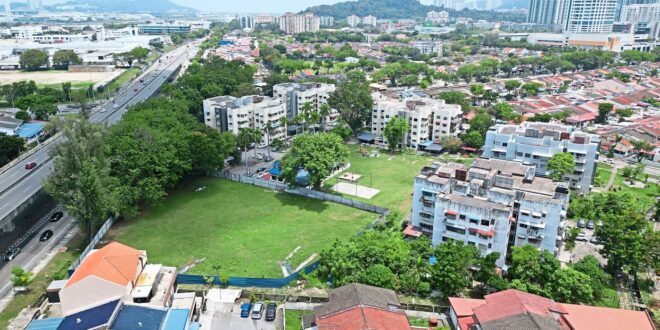PENANG is looking at reviewing its quit rent charges to boost the state’s coffer, says Chief Minister Chow Kon Yeow.
He said a special task force would be set up in each district to look into the matter under Section 101 of the National Land Code (Act 828).
“The state authority has the jurisdiction to review the quit rent charges every 10 years for land that it owns.
“In Penang, it was reviewed in 1970, 1984 and the last time was in 1994, which is 30 years ago.
“The new charges took effect in 1996,” he said in responding to a written question by Goh Choon Aik (PH-Bukit Tambun) during the state legislative assembly sitting on Thursday.
Goh had earlier asked Chow about strategies to increase the state’s income.
Chow said another move that could increase the state’s income was through rebates for overdue fines or late payment of quit rent.
“This rebate proposal is one of the measures that can be taken to reduce the revenue arrears and encourage landowners to pay taxes,” he said.
Chow said another measure was the reclassification of rural land to urban land.
“Did you know that Bayan Baru is still classified as rural land even though it has advanced over the past 40 years.
“Due to its classification as rural land, the land tariffs are lower,” he said.
He said land in areas such as Relau, Paya Terubong, Air Itam, Seberang Jaya and Tambun should also be reclassified.
“We completed this reclassification exercise two years ago but as a caring government and possibly due to the state elections, we postponed the implementation,” Chow said.
He said the reclassification of the land could bring in additional revenue of between RM20mil and RM30mil.
“However, there is a limit to increasing revenue from quit rent as this will burden the people so we have to do it responsibly,” he said.
Quit rent is imposed on owners of any landed property in Malaysia, which includes both freehold and leasehold land.
Earlier, Chow said until last April 30, the state government had recorded a RM23.53mil surplus in revenue.
“Our revenue was RM258.72mil compared to expenditure of RM235.19mil.
“This is because of the state’s commitment to improving the people’s quality of life.
“Nevertheless, the state government is continuously looking at new strategies to increase revenue,” he said.
 BeritaKini.biz Berita Viral Terkini di Malaysia
BeritaKini.biz Berita Viral Terkini di Malaysia





